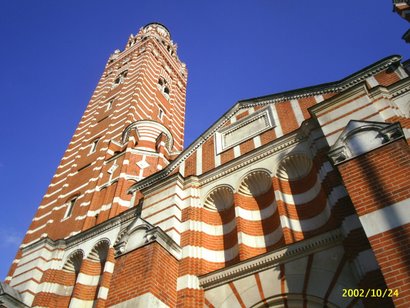Remember, Thou art dust ...

People these days take a great pride in their appearance. Even when, as in my case, the choice of what to wear is between black or black, I spend wasteful moments pondering which shoes to wear, which jacket. There's always that final check in the mirror before I go out.
Today, though, we wear something different - the smudge of ash on our forehead. Nothing could be more contrary to our worries about how we seem, what others think of us, how we need to appear at our best.
Today we are stripped of these things. For as the ash is placed upon our foreheads, we are brought face to face with a terrible reality. That we are not self-sufficient, we are not self-defining. The ugly smear of ash is the mark of our death. It is on our forehead. It cannot be avoided. There can be no pretence, no schemes, no compromise. We stand naked before the fact of our mortality. There is no other outcome.
Our society offers us so many beguiling words today: be young, be beautiful, be rich, be successful. Today we hear other words – dread and sobering words, which give the lie to the beguiling promises of society: "Remember thou art dust and unto dust thou shalt return". We hear the sentence of our sins, and we see the false promises for what they are. This body, this world will pass. Here is no abiding city.
Be shocked. But be filled with hope. It is not we are destined to become the dust of oblivion - but sin and death itself.

7 comments:
I attended the High Mass at the Cathedral this evening. Can you explain why the choir split in two for the Miserere Mei during the imposition of ashes, with the smaller section starting at the back of the Cathedral and working its way along the balcony for each alternate verse? Thanks!
The choir was singing the famed 'Miserere' (the Penitential Psalm 50) by Allegri - a piece always associated with this day.
The verses of the psalm are divided between different forces of voices - sometimes the full choir, sometimes a small semi-choir, and sometimes a soloist.
The drama of the piece is incresed by separating these forces - in particular, placing the soaring treble voice with its famous high phrase in a different part of the Cathedral. By moving the semi-choir along the balcony, the sense of drama and of tension was heightened.
I believe the history of the composition is that this piece was written for the Papal Choir in the Sistine Chapel, and was considered by the Popes to be so exquisite that it was forbidden to be sung elsewhere. To ensure compliance, the sheet music was not allowed out of the Vatican.
It became a great event in the tourist calendar - visiting the Sistine Chapel to hear the papal choir sing the Miserere. However, one such tourist was the young Mozart who, with his phenomenal abilities, was able to reproduce the piece from memory, so that the Papal monopoly was broken!
Certainly the 'Miserere Mei' was sung excellently last night: as always. The first solo from the treble never fails to make my eyes water.
Your choir is one of the glories of Westminster and of the Universal Church and you could certainly teach the current Sistine Chapel choir a thing or two.
"However, one such tourist was the young Mozart who, with his phenomenal abilities, was able to reproduce the piece from memory, so that the Papal monopoly was broken!"
Now THAT is a real urban myth!
Hooray for Mozart!The 'Miserere' by
Allegri, to my mind is the most beautiful piece of music ever written. Thank you for the explanation and the potted history.
Thank you - I should have added of course that it was sung beautifully and movingly.
But, Ivo, a great one; se non e' vero, e' ben trovato!
Post a Comment